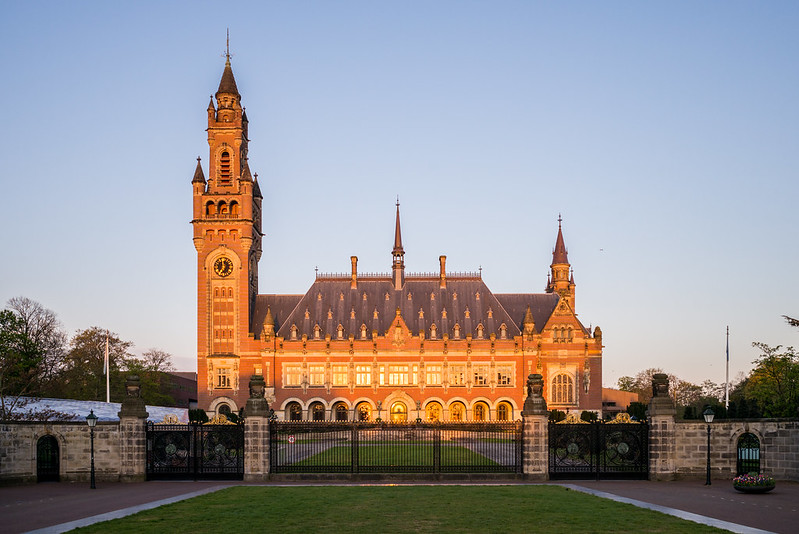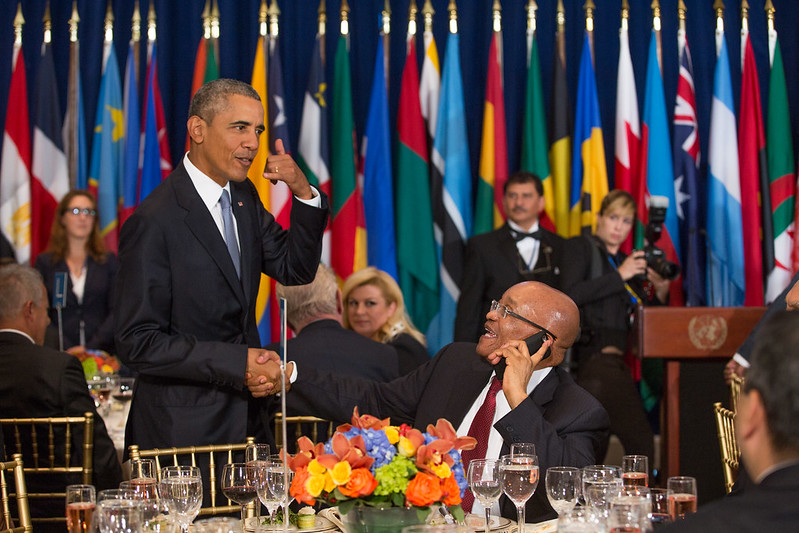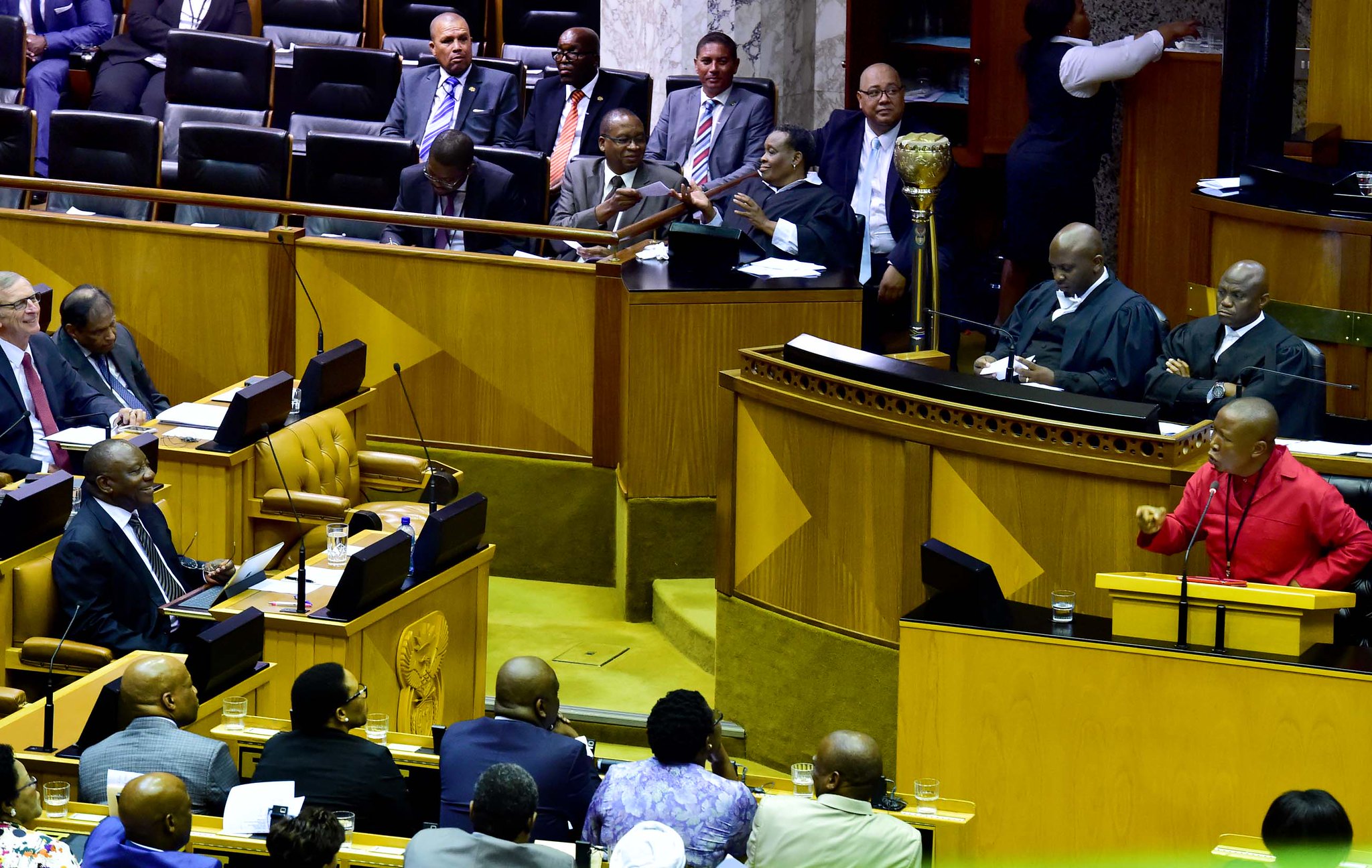South Africa’s ruling party has a long-standing commitment to supporting the independence of Western Sahara. But as Candice Moore writes, that may be starting to conflict with its other stated foreign policy goals.
In January 2023, South Africa failed to secure the African vote for leadership of the UN’s Human Rights Council. The country would normally expect to win the bloc vote without breaking a diplomatic sweat. The sticking point appears to be South Africa’s support for Western Sahara.
The UN Human Rights Council is the primary intergovernmental body monitoring human rights globally. It is composed of 47 Member States that serve for 3 years with quotas to ensure geographical distribution. The president of the Council is elected from among the members of the Council, and this year was Africa’s turn to nominate a candidate for the presidency. However, when agreement within the Africa group could not be reached, the vote was put to the wider membership of the Council.
South Africa failed to win the African vote, with the result that Morocco’s UN Ambassador, Omar Zniber, has secured the role. This nascent competition has the Western Sahara issue as a backdrop: Morocco’s ability to maximise its global alliances – particularly with the US for example – has ensured that South Africa has lost out on this diplomatic accolade.
The Western Sahara conflict started in 1956 when, after gaining independence from France, Morocco claimed sovereignty over the Western Sahara which was under the control of Spain. When Spain withdrew from the territory in 1976 it handed over administrative responsibility to Morocco and Mauritania, rather than overseeing independence. The continued struggle over the sovereignty of Western Sahara has been a bugbear for Morocco, impinging heavily on its foreign relations, especially with its neighbour, Algeria, who has, over time, vacillated between ambivalence toward the POLISARIO Front, the liberation movement of the Sahrawi people in Western Sahara, and active support of it.
WS and SA
Support for Western Sahara has been a hallmark of South Africa’s post-apartheid foreign policy – albeit one that most South Africans might never have heard of. The two conflicts that have consistently been named in the ANC’s foreign policy documents are Palestine and Western Sahara. No other conflicts or international issues have enjoyed the consistency of approach and discourse that these two issues have enjoyed from South Africa’s ruling party. ANC solidarity with Western Sahara is woven into the fabric of the organisation. The ANC’s longest-serving leader, Oliver Tambo, built the POLISARIO cause into the DNA of the ANC’s progressive internationalism – the foreign policy value that has been said to guide the ANC since its time underground and in exile. The party views the issue as an outstanding case of colonisation and is deeply ideologically committed to Sahrawi independence.
South Africa’s position on Western Sahara has been referenced in most, if not all, ANC policy documents and resolutions on international relations since the democratisation of South Africa in 1994. It is one of the very few international issues on which the ANC’s position is clear-cut and ready-made. Most recently, in October 2022, President Cyril Ramaphosa, in welcoming the President of the Saharawi Arab Democratic Republic to South Africa, reaffirmed that “Until the people of Western Sahara are able to exercise their right to self-determination, the decolonisation of Africa will be incomplete”. In its 55th National Conference Resolutions of 2022, the Party reiterated its “call for the right to self-determination of the people of Western Sahara, with a view to enable these countries and peoples, to effectively exercise sovereignty”.
South Africa has offered more than just rhetorical support to Western Sahara. In a parliamentary Public Lecture in 2017, the then-Deputy Minister of the Department of International Affairs and Cooperation (DIRCO), Luwellyn Landers, stated that in 2015 South Africa’s Department of Arts and Culture had donated R1 million towards Western Saharan films and that R1.7 million of technical assistance is provided annually by South Africa to Western Sahara. Between 2007 and 2010 the African Renaissance and International Cooperation Fund (ARF) also made disbursements of R52 million. In June 2016 alone, R10 million was disbursed to Western Sahara as humanitarian aid. This amounts to 4 per cent of the South African international cooperation budget for that year.
South Africa and Morocco have long experienced strained relations over their divergent stances on this issue. A longstanding sticking point for Morocco has been fighting off the inclusion of human rights monitoring in the mandate of MINURSO, the UN Mission for the Referendum in Western Sahara. South Africa, on the other hand, supports this.
South Africa appears to be of the view that it has a role in resolving the conflict. The UN Secretary-General’s Personal Envoy for Western Sahara, Mr Staffan de Mistura, in February 2024 paid a visit to South Africa on Western Sahara business, upon South Africa’s invitation according to reports, even though South Africa is not a party to the issue. This has, understandably, annoyed Rabat, which sees the visit as undermining the impartiality of the UNSG Personal Envoy.
For South Africa, the conflict presents a dilemma. On paper, this is a battle for decolonisation with the Sahrawis fighting for independence over disputed territory with a sovereign state. It is a fight that the ANC has championed since the 1970s. But more recently the conflict has posed a threat to African diplomatic unity, one of the other central pillars of South Africa’s foreign policy.
The resumption of the conflict in 2020 after a 30-year ceasefire was followed by US recognition of Morocco’s claims over Western Sahara, under the Trump administration. France is also said to be considering recognising Moroccan sovereignty of Western Sahara – in this, it would be joining the US and Israel as the only two nations that currently do so.
The latest outbreak of fighting was preceded by Morocco’s return to the African Union (AU) in 2017 and has cast new dividing lines in African continental politics. Morocco has, since its accession to the AU, succeeded in curbing the organisation’s involvement in the resolution of the conflict. This goes against South Africa’s continental objectives, which encompass building capacity and influence for Africa’s regional and continental conflict resolution and development architecture. South Africa may have to re-examine its approach to the conflict in the context of African unity and the institutions of the AU. While some see the lost UNHRC Presidency of 2024 as the first casualty of South Africa’s high-profile International Court of Justice genocide case against Israel, recent developments may indicate the need for a deeper examination of the implications of solidarity for South Africa’s broader foreign policy goals.
Photo credit: UN Geneva used with permission CC BY-NC-ND 2.0 DEED





